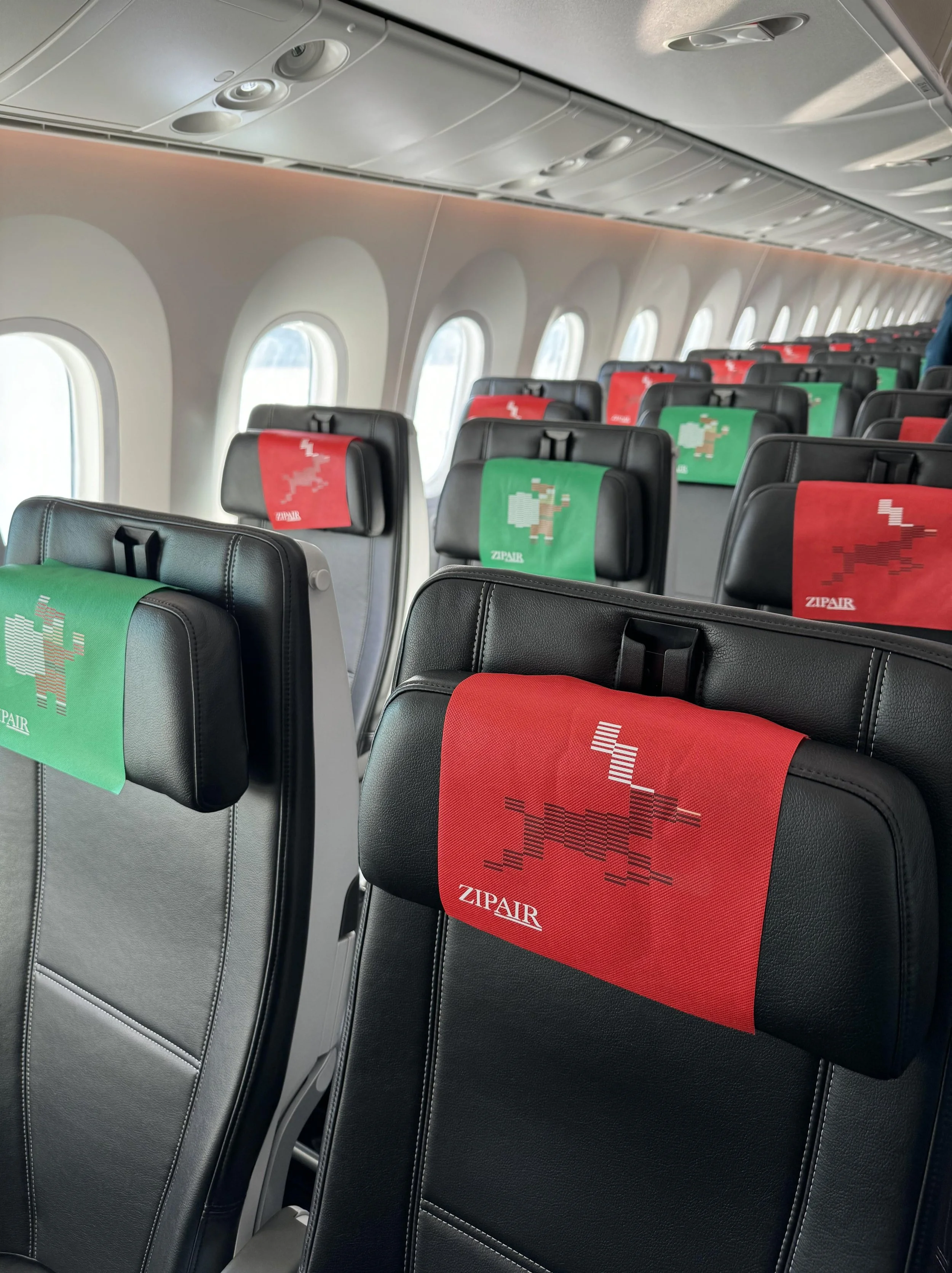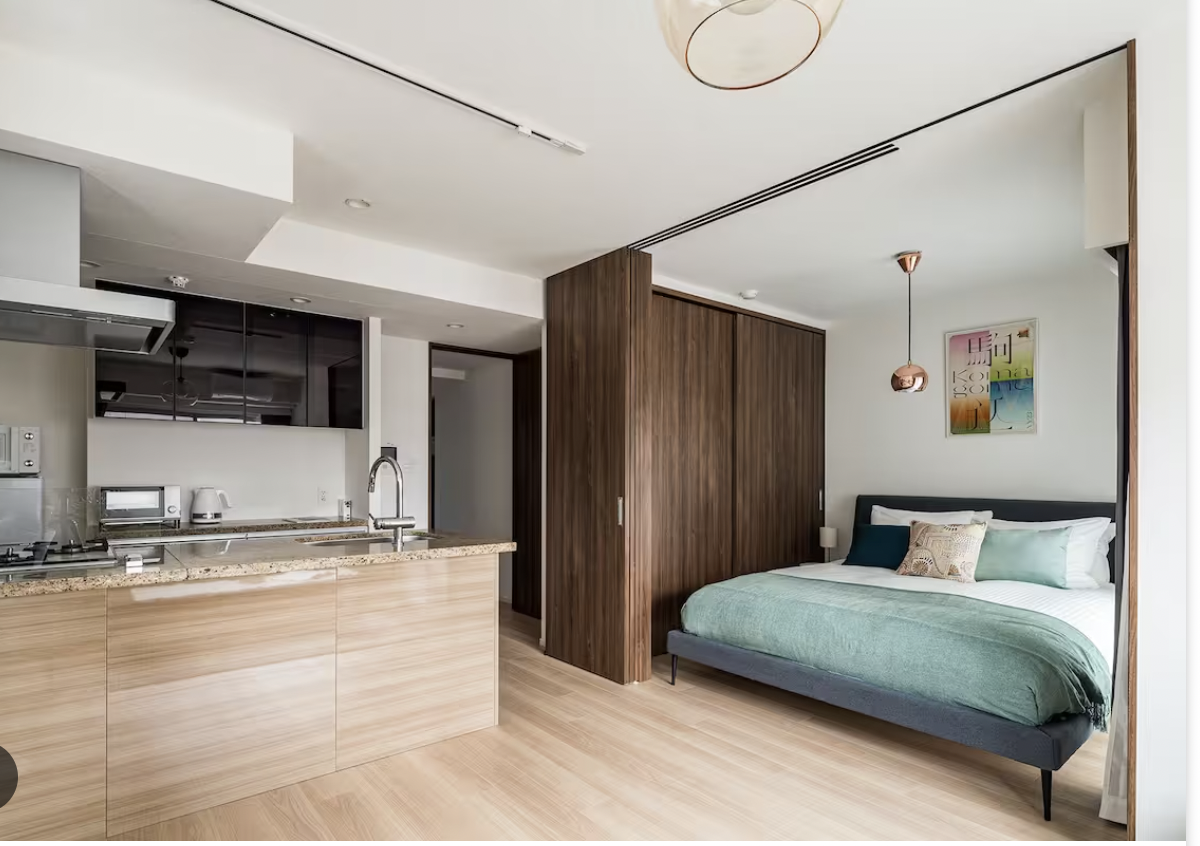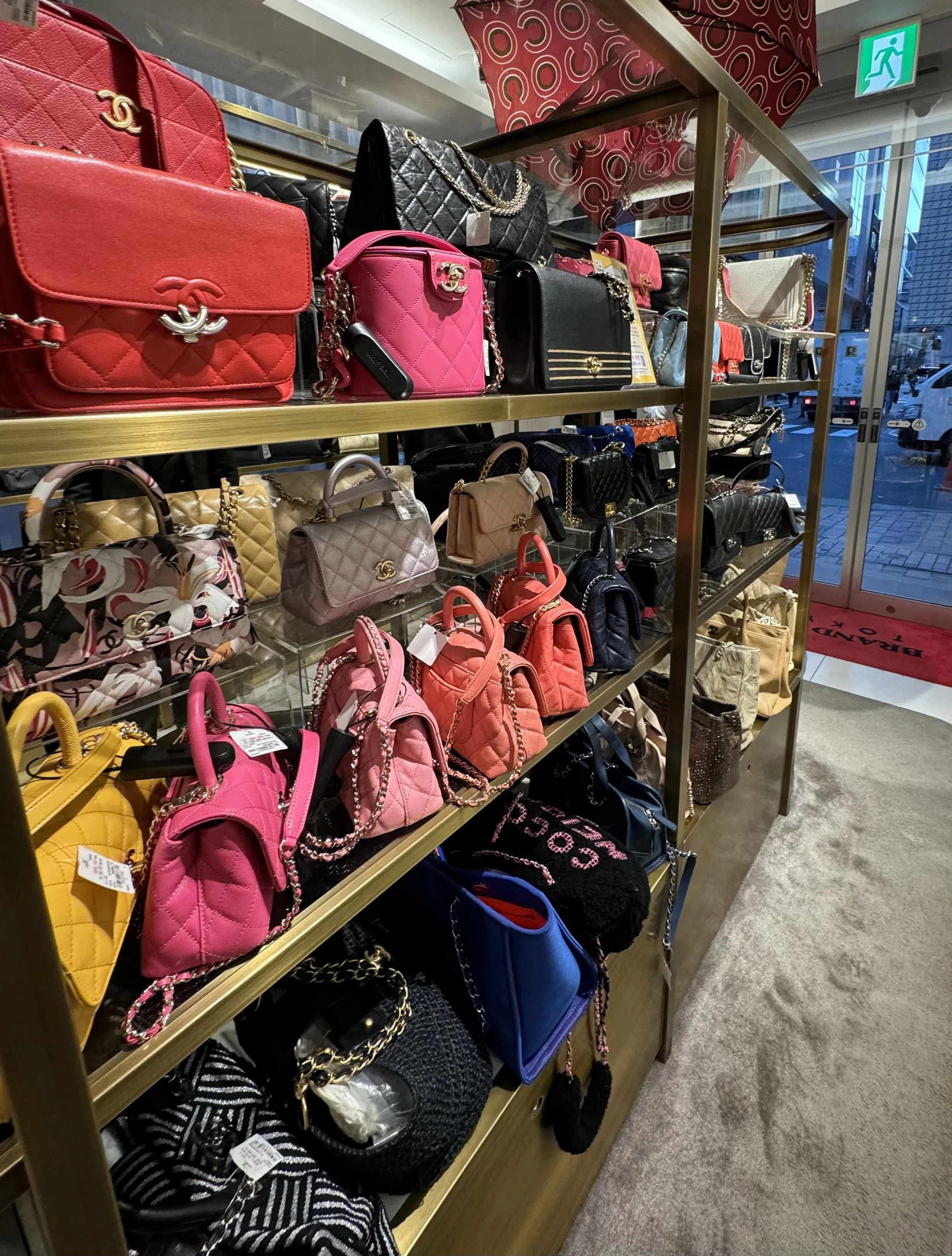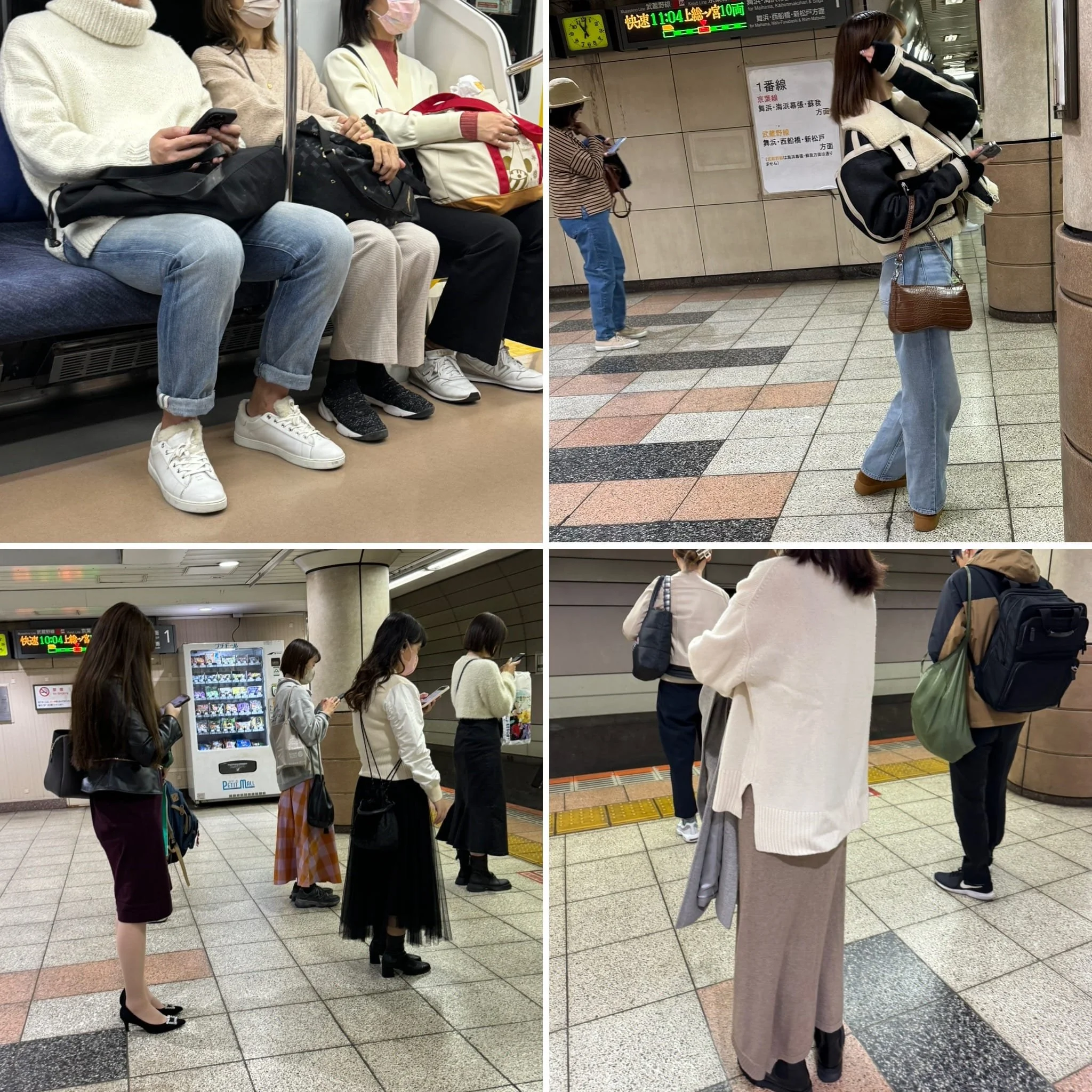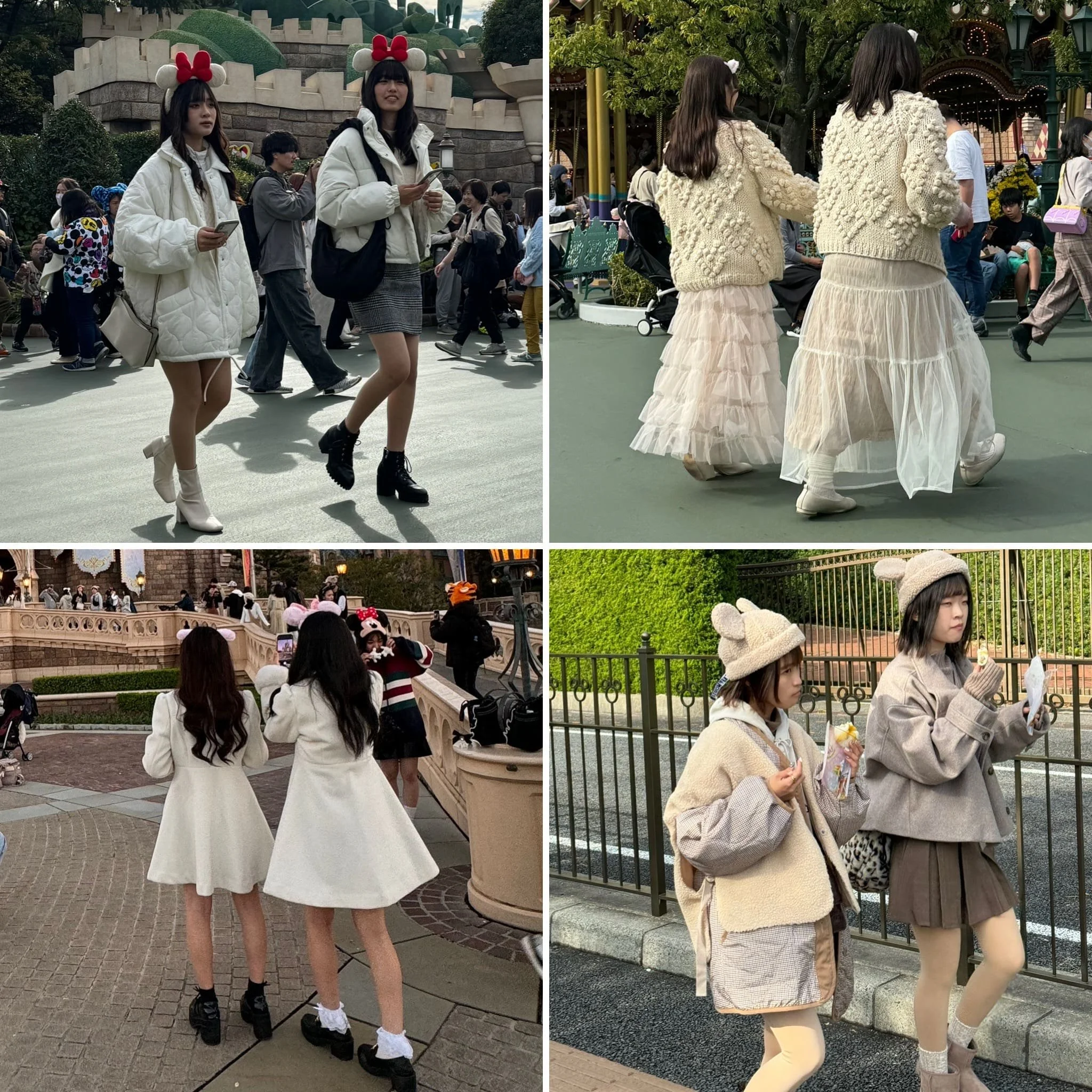I’m very lucky that my mother’s side of the family lives in Japan. So growing up I went there almost every summer and winter break. If you were to ask me about my Japanese speaking skills, I can speak at an elementary level and I understand way better than I speak. I usually default to English first and only break out the Japanese when the other party doesn’t know any English (though these days in Tokyo that feels pretty rare). But it’s been almost a decade since the last time I was in Japan (maybe 8 years) and wow things have gotten so much easier for your average English-speaking tourist. I should also mention that as much as I love traveling to other towns and cities in Japan, this year we stuck to Tokyo since that’s where my family and Tokyo Disneyland are located 😂.
Flying to Tokyo
We took ZipAir for the first time and it is a great budget airline (its JAL’s budget airline). They nickel and dime you about everything including your check-in and carry-on bag weight, seat selection (except if you’re traveling with a child, then seat selection is free), along with the meals, beverages, etc. And they are quite strict about baggage requirements: getting under the 15kg or 33lb weight limit (for which we paid extra) for all carry-ons including roller bags was tough; though check-in bags have a limit of 30kg or 66lb—also need to pay extra for this. But in total we paid 1/3 the price for the same economy flight on ZipAir compared to other airlines (on average I think you pay 1/4 to 1/2 less). Even if you add a full package (in-flight amenities, food, extra carry-on and check-in luggage weight) it’s only about $250 more per ticket. But we liked the ala cart option since we didn’t want the amenities pack (slippers, inflatable neck pillow, eye mask), nor did we pay for luggage for Emi, or food for every flight (food is served at the beginning of the flight, and if you want it 2 hours before you land then you have to pay extra). Food is awful plane food though so don’t get it if you can help it. All of this means the emissions of a ZipAir flight is on average 18% less than other airlines. Also the bathrooms were super clean. The only real negative was that the flight was hot. They don’t blast the AC (in fact it hardly feels like its on at times), which might be good for the environment but not for a red eye flight. I found myself sweating even with just a cotton tee and my Quince linen pants, so dress in layers. But overall I recommend the airlines for it’s very reasonable cost and reduced environmental impact. Currently they only fly to and from Honolulu, San Francisco, San Jose, and Los Angeles to Tokyo. And then from Tokyo they fly to Seoul, Manila, Bangkok, and Singapore.
Hotel
In Tokyo we stayed at the Section L in East Ginza. Since we splashed out on our hotel room in Seoul, we went for a more budget friendly option for our one week in Tokyo. But the main reasons I booked this hotel is because it’s more like a small apartment and came with a kitchen and a washer (I had to hang dry my clothes in the shower/tub room with a dryer function, but it works well!). After a week of traveling in Seoul we had a ton of laundry and having our own washer was a huge plus. Also having a kitchen (with all the essentials including a ricecooker and toaster oven) meant that we didn’t have to go out to eat for every meal. There are quite a few Section L’s in Tokyo, and they all have that small Airbnb feel. The one in East Ginza was a less than 5 minute walk to the Hatchobori station, which has both the Hibiya line (one stop from Tsukiji and two stops from Ginza) and JR Keiyo line (this one is the one you need for Tokyo Disneyland and DisneySea). If you have a kiddo and are planning to go to Tokyo Disney, but not stay at the resort, then I highly recommend looking into Section L Ginza East (it’s 11 minutes away with an express, 20 minutes if not). The hotel is also minutes away from several combini markets (a 7-11 and a Family Mart), which is pretty clutch. And best of all you can pack light since you can easily do laundry from your own mini apartment. The next time we’re in Japan, we probably will stay at an L Section again (but try a different location for variety).
Transportation
When I was young I had to learn how to read Japan’s metro map to figure out how much to pay for train fare. But welcome to 2023 and now you can download the Suica card to your iPhone wallet and not bother with train tickets altogether. The Suica card is an IC card that can be used for both trains, buses, cabs (I think), and even vending machines. It has to be linked with a MasterCard and refilled manually (it doesn’t automatically deduct from your credit card), but oh wow it’s so convenient! You don’t even have to unlock your phone, just tap it to the IC card reader and you’re set. For Emi (who doesn’t have a phone obvi), we tried getting a Suica Youth card (since children pay a lower rate than adults), but they were not selling Suica cards or Passmo (another IC card) at the time of our visit. Luckily I still had my Passmo from 8 years ago and she was able to use that so I didn’t have to buy train tickets for her. But if you’re traveling with a kid, I suggest seeing if you can get a Suica Youth card for convenience. And lastly Google works great in Japan. It’ll tell you which trains to take (in what direction you should be heading), the train times, the train fares (so if you can’t get an IC card, just use Google to figure out your train fares—you still don’t have to mess with the metro map), and which train cars to take for the easies exit (ie which is the emptiest). And if you want to take a cab, I recommend using your Uber app since Japan has special Uber cabs. This makes it easy to schedule a pickup and to let them know where you’d like to be dropped off (so you don’t have to worry about the language barrier).
Shopping in Tokyo
Pre-kid I used to shop all over Tokyo, with some of my favorites being Shibuya, Roppongi Hills, Omotesando, and Ginza. But with a kid, I was only able to steal about an afternoon away from the family and I shopped only in Ginza. In my grandparents’ later years they lived near Ginza so I’m really familiar with the area so it was easier for me to hit up my favorite shops in a short amount of time. I like to go to Dover Street Market, then crossover to the huge Uniqlo flagship (but I usually go straight to the topmost floor to see the special collab items that usually sell out at other Uniqlos. This year it was the Anya Hindmarch collab where I snagged some accessories but passed on the sweaters which were partially made of plastic and felt of poor quality), the Muji flagship, as well as Mitstukoshi and Matsuya (two stalwart department stores). This year I also checked out Loft in Ginza, which was nice but not as fun as Loft in Shibuya. When in Shibuya I also like to check out the Tokyu Hands, Mega Don Quijote, and the Parco department store. You can check out a short Reels I did for Insta with all my videos I took while shopping.
BrandOff Ginza
This year I also spent some time looking at secondhand/vintage shops. Eight years ago I wasn’t as into thrifting as I am now, so I had to do some research beforehand. I specifically looked for secondhand designer bag shops because that is what Japan does so well. Japan is seriously THE BEST place to buy preowned luxury bags because: 1) The country is super strict about fakes and resellers supposedly need to adhere to strict authentication processes (this is not to say that a superfake can’t get by them, it’s just that the chance of getting a fake is overall much lower in Japan); 2) In general Japanese resellers are very meticulous and will point out every detail and flaw online (or once when I bought a secondhand Comme des Garcons shirt in person they spent a good few minutes pointing out the flaws and making sure I still wanted it); 3) Japanese owners usually take great care of their items and keep all dust bags and accompanying cards/tags and sometimes receipts; 4) and lastly if you’re buying right now the currency exchange rate is very much in our favor. And if you follow me on Insta, you know I scored a sweet deal on a gorgeous black pebbled leather The Row Park tote in medium. I got it from BrandOff, which is not IMO the best place to get luxury goods because they’re a big name and subsequently charge more. However they were the only place I walked into that had anything from The Row in stock (they also had a half moon bag). And even though I initially left the tote on the shelf, I went back the next day because I couldn’t stop thinking about it 😆. Other secondhand places I stepped into included Gallery Rare located next door to BrandOff and specializing in Hermes and Chanel. If you’re looking for clothes and less expensive bags, I would recommend checking out Kindal Ginza (there’s another Kindal in Harajuku as well). They have both mens and womens clothing and a small selection of bags (I checked out a really well priced Loewe Amazonia there). And right next door, I stumbled into RT Ginza (stands for rag tag and there’s one in Harajuku as well) which has several floors of secondhand fashion. The bottom was brands like Theory and Vince, the second floor was designer fashion (including some Japanese brands like Commes des Garcons and Issey), the third was luxury bags and jewelry, and the upper floor was mens. Other secondhand shops that I would have like to checked out elsewhere in Tokyo include Vintage Qoo Tokyo (Shibuya), Vintage Paris Aoyama, Hedy Daikanyama, and Amore Vintage Omotesando.
And one last thing about shopping in Tokyo: make sure to bring your passport for tax-free shopping. Anything over 5000 yen (of non-food and other non-consumable items like clothes and bags) is tax free (saving about 10%). Most shops didn’t charge tax at the register when you hand them your passport though some shops will charge tax and then require to get a tax refund on a different floor within the shop. When it comes to secondhand luxury items, getting them tax free is the cherry on top. When you get to the airport you are supposed to declare your items (thus keep all your receipts) however it’s super confusing and the kiosk to declare items were closed when we were there. And there’s a limit to the amount you get tax-free. But here’s the thing, I don’t think customs officials will check as you head to your gate unless you’re obviously carrying something expensive. For example, a woman carrying a large Hermes shopping bag was stopped going past customs. So my advice is don’t sweat the declaration part (especially if the customs kiosks at the ticketing area are closed) but just dress like your average tourist at the airport.
Style in Tokyo
And since I had a section about style in Seoul, I’ll add one for Tokyo. But I think overall Tokyo had way more variety when it came to style than Seoul. There wasn’t really any one trend I could see or just a handful of luxury bags that everyone carried. Though I will say that in Japan 97% wear conservative-style/modest/business clothing, there’s 3% that wear clothing that’s really out there, things you would never see outside of Tokyo. And then there’s Tokyo Disney fashion where both men and women (though mostly women) love to twin. It’s a thing for adults to dress up for Disney.
Anyway I hope you liked my little recap. And let me know if there are any other questions you might have about traveling to Tokyo (though I’m no expert by far, but would love to be someday 😄).
